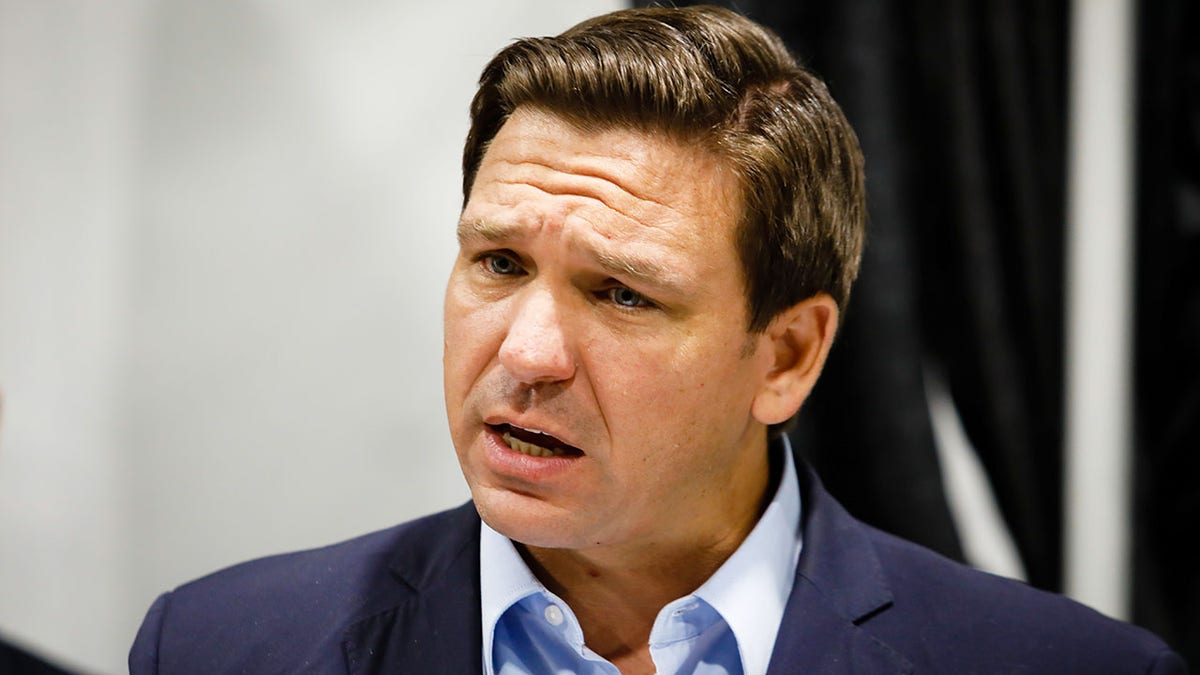Rep. Kevin McCarthy slams Democrats over COVID policies: 'It's all about power'
The House minority leader joined 'The Faulkner Focus' to discuss the impact of the lockdowns on children across the country and growing calls for COVID-related policies to be reversed.
A new study out of Johns Hopkins University indicates that lockdown measures during the coronavirus pandemic "have had little to no effect on COVID-19 mortality," and Republican leaders are pointing to it as justification for their approach.
The review looked at 24 studies that qualified for the authors’ analysis, which included those that looked at lockdown stringency, shelter-in-place orders and various forms of "compulsory, non-pharmaceutical intervention."
YOUNGKIN'S MASK MANDATE: VIRGINIA JUDGE WEIGHS GOVERNOR'S POWER TO LIFT DECREE
"This is what so many people had been talking about for so long. That it does not really have an effect on how well we were able to go through it," House Minority Leader Rep. Kevin McCarthy, R-Calif., told Fox News Thursday.
"But what does it have an effect on, all these shutdowns? How many people missed a cancer screening? The mental health, the suicides for young children. This shutdown is going to have effects for decades to come."
Sen. Rand Paul, R-Ky., a staunch opponent of Washington-led pandemic policies and a fierce critic of National Institute of Allergy and Infectious Diseases Director Dr. Anthony Fauci, said he hopes the country learns from this experience.
"In the 14th century, the pope surrounded himself with candles because they thought the infection could be burned out of the air to save people," Paul told Fox News’ "America Reports" on Wednesday. "It was a wrong-handed notion. It took a few centuries – really to the 19th century – to understand the germ theory. Now we have lockdowns, which are not based in science, and really we know that by and large masks did not work, Plexiglas did not work and six feet of distance did not work. The one thing we do know that did work is vaccines and natural immunity."
"I hope we learn from this," Paul added. "The study is an extensive analysis looking at dozens and dozens of studies — bringing them together — and said lockdowns did not reduce mortality but were devastating to the economy."
TOP OVERSIGHT REPUBLICANS CALL ON 7 SCIENTISTS TO TESTIFY ON COVID ORIGINS, WUHAN LAB LEAK
Christina Pushaw, press secretary for Florida Gov. Ron DeSantis, pointed to the study as support for DeSantis’s anti-lockdown, anti-mandate approach to the pandemic, for which he had been blasted by critics.
"For nearly two years, corporate media and partisan opponents have targeted Governor DeSantis with relentless criticism for taking a strong stand against lockdowns," Pushaw said in a statement to Fox News.
"In Spring 2020, they attacked him for refusing to close Florida’s beaches. In Summer 2020, they attacked him for opening schools. In Spring 2021, they attacked him for ending local emergency orders in the few counties that still attempted to impose restrictions. In Fall 2021, they attacked him for appointing State Surgeon General Dr. Joseph Ladapo, an eminently qualified physician who immediately ended the forced quarantine of healthy schoolchildren."

Ron DeSantis, governor of Florida, speaks during a news conference at a Regeneron monoclonal antibody clinic in Pembroke Pines, Fla., Aug. 18, 2021. ( Eva Marie Uzcategui/Bloomberg via Getty Images)
Pushaw said DeSantis "followed the science and made data-driven decisions" while others "sowed fear to achieve greater political power and control."
Sen. John Kennedy, R-La., encouraged experts to conduct studies that examine how the country handled the pandemic, noting that he had not yet read the Johns Hopkins study.
"We need to take a look back and find out what we did right, what we did wrong," Kennedy told Fox News.
"I remember when government at all levels imposed the first lockdown," Kennedy added. "They told us it was only going to be for a couple of weeks. It wasn’t for a couple of weeks.
Kennedy added that while some officials were acting in good faith but got it wrong, others were acting in bad faith because they "got a taste for power."
CLICK HERE TO GET THE FOX NEWS APP
Now, nearly two years after the first lockdown measures were put in place, Kennedy says Americans need to look back and consider whether it was worth it in the long run.
"Did it stop COVID? Doesn’t look to me like it did," Kennedy said. "Did it gut the American economy like a fish? Yes. Did it set our kids back years in terms of learning and socialization? Yes. Did it lead to neglected health care from people with non-COVID illnesses? Yes. Did it impact the whole world? Yes. When America sneezes, the rest of the world gets a cold."
















































